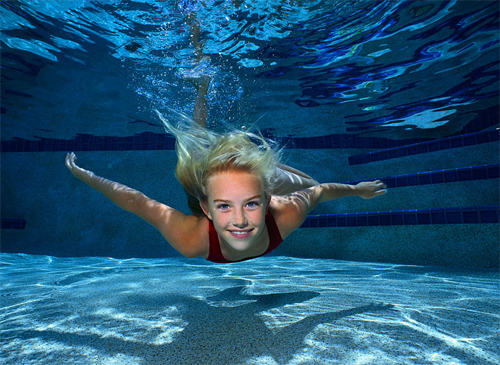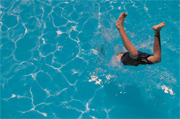Posts Tagged ‘“swimming pool”’
Swimming Pool Safety for Families
 Many of us will spend the last few weeks of summer by the pool, with family and friends, at a slower pace. Relax and enjoy it, but also remember you have responsibilities if young children are around the pool. When a child is left unsupervised, tragedies can happen quickly, sometimes within seconds. In fact, a child who is submerged under water can lose consciousness within just two minutes. Within four to six minutes, permanent brain injury can occur.
Many of us will spend the last few weeks of summer by the pool, with family and friends, at a slower pace. Relax and enjoy it, but also remember you have responsibilities if young children are around the pool. When a child is left unsupervised, tragedies can happen quickly, sometimes within seconds. In fact, a child who is submerged under water can lose consciousness within just two minutes. Within four to six minutes, permanent brain injury can occur.
Swimming pool drownings are preventable. If parents, family and friends at the pool work together, you can keep swimming a safe and fun experience for young children.
Our injury attorneys share a few safety reminders:
Watch Young Children. Never leave your child alone in the water or near the water. That includes kiddie pools. At the pool, set aside all distractions: your cell phone, magazines and engaging conversation.
Take a Break from Distraction. If you become distracted or fatigued while watching your child, take a break. Ask them to come out of the pool for a little while.
Swim with your Child. Practice “touch supervision” with young children and keep them within reach at all times. As your child gets older, enroll them in swimming lessons. Make a point to get in the pool with them regularly. You can evaluate their strength as a swimmer best from the water and show them how to handle the water around other children.
Swim with a Buddy. Make sure your child knows they must always swim with someone else.
Lifejackets and Floats. Flotation tubes and rafts are not intended to support your children. To give your child extra protection, explore the U.S. Coast Guard website for information on personal flotation devices.
Lifeguards. At community pools, take note of the lifeguard stations and ask how many lifeguards are on-site. But do not rely on the lifeguards. Watch your own children.
Explain the Safety Rules to Your Child. Explain the rules of pool safety often to your child so they understand your priority is to keep them safe.
Not a Parent? If you are not a parent, listen to what your friends or relatives are telling their children. Be aware of their concerns and try to help create a safe pool environment.
Read More
Drownings Claim 90 Children in U.S. Since Memorial Day
 The Consumer Product Safety Commission (CPSC) reports pool drownings have claimed the lives of 90 children in the U.S. since Memorial Day, a sober reminder for parents and caregivers to review how they are protecting their youth.
The Consumer Product Safety Commission (CPSC) reports pool drownings have claimed the lives of 90 children in the U.S. since Memorial Day, a sober reminder for parents and caregivers to review how they are protecting their youth.
These figures were released for Pool Safely Day, an event being observed nationwide this week, from July 22 to July 29, 2012. In Massachusetts, the South Shore YMCA in Quincy and the Boys & Girls Club of Taunton were scheduled to host educational events.
The CPSC reported 90 children under age 15 have suffered swimming pool drownings and an additional 106 children in the same age category have required emergency response for near-drowning incidents at pools. The figures were released by the CPSC’s Pool Safely: Simple Steps Save Lives campaign.
The figures show younger children are most vulnerable, with 72 percent of the drowning victims younger than 5 years old.
Texas saw 13 drownings, the highest number nationwide through the mid-summer report, with California, New York, North Carolina, Ohio and Pennsylvania each reporting 5 swimming pool drownings.
Parents should make sure their children have taken swimming lessons and instruct them on ways to protect themselves, such as to stay away from pool drains, pipes and other openings; stay in certain areas of the pool and only use diving boards after asking parents. Children 13 and older should also be trained in CPR.
Parents and caregivers should also:
- Stay close and alert when watching children in and around the pool.
- Never leave children unattended.
- Learn CPR.
- If you own a pool or spa, make sure it has appropriate safety equipment. At pools, that includes fencing, a lockable safety cover, drain covers which match federal requirements, life rings and a reaching pool. Spas should have lockable covers for when not in use.
Click here for a full list of pool safety tips from the Boston personal injury lawyers at Breakstone, White & Gluck of Massachusetts.
Related:
- Midsummer Drowning Checkup: 90 Child Drownings Nationwide since Memorial Day, Consumer Product Safety Commission.
- Swimming Pool Accidents, Breakstone, White & Gluck.
- Pool Safely website.
- Virginia Graeme Baker Pool & Spa Safety Act, Pool Safely.

